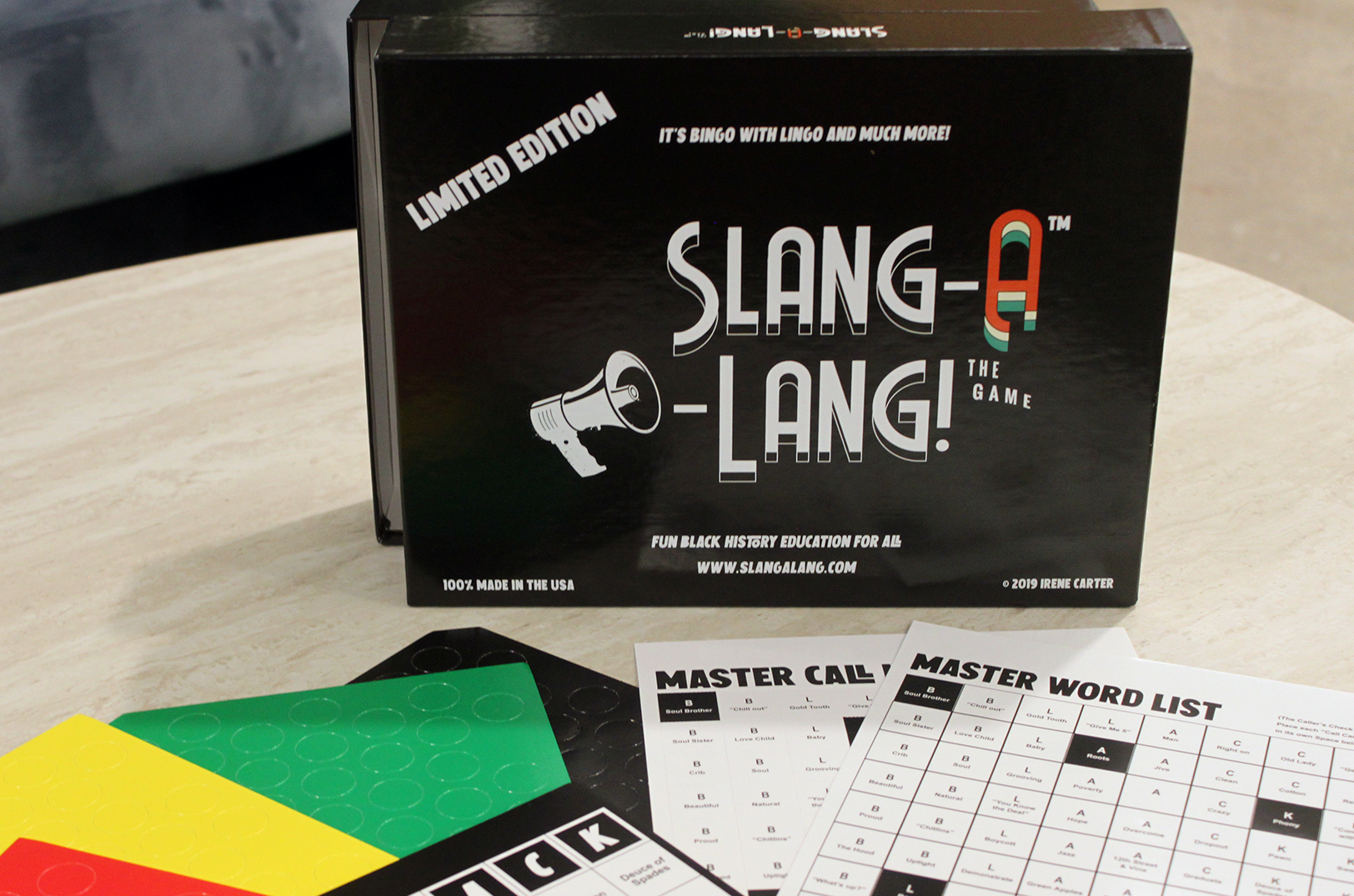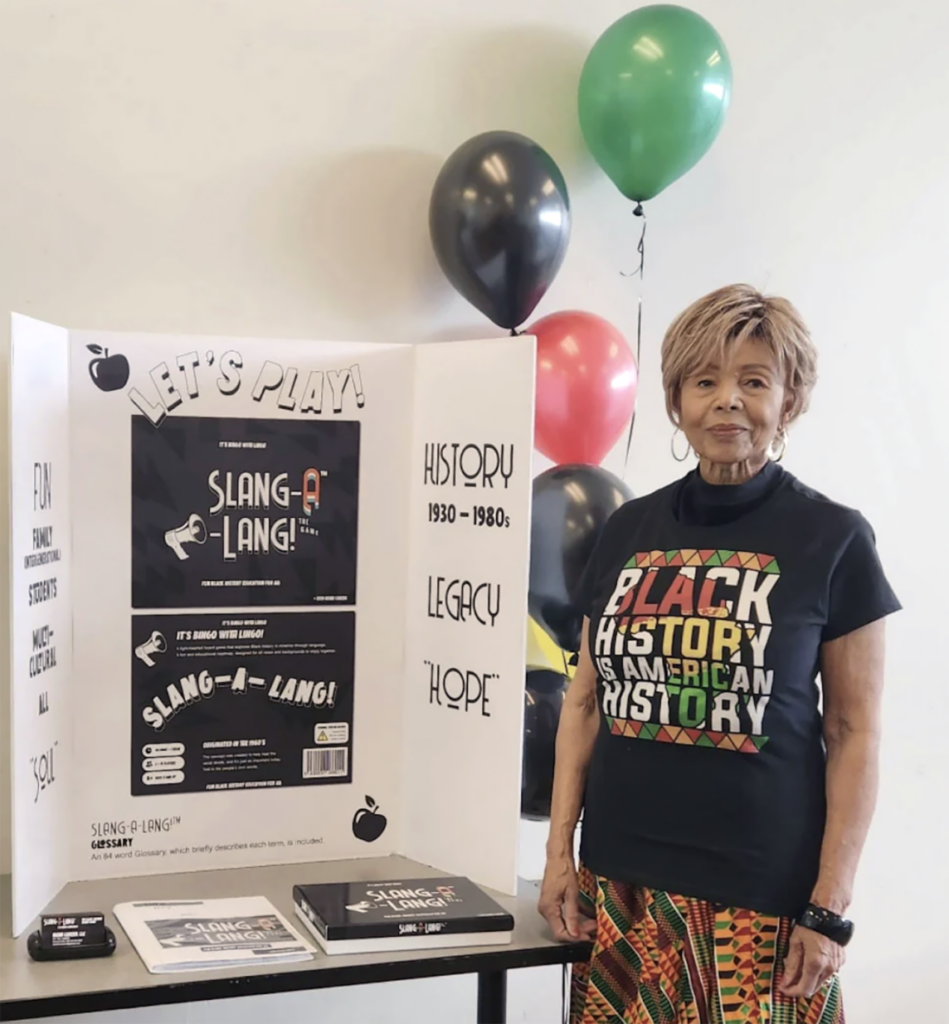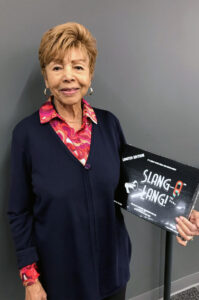A board game originally conceived in the wake of Dr. Martin Luther King Jr.’s 1969 assassination is making a revival in 2024 — thanks to the Kansas City entrepreneur who created it and remains committed to keeping Black history alive.
SLANG-A-LANG!™ returned to shelves earlier this year, said Irene Carter, noting the game was born out of a need to celebrate and affirm Black identity as the nation grappled with the fallout of King’s death and the promise of newly-passed Civil Rights legislation.
“SLANG-A-LANG! is Black history explored through language,” she said. “It’s timely, timeless, fun, and filled with good vibes.”
Carter, who was involved in organizing book scholarship fundraisers at the time, wanted to create something that would entertain and also educate.
“I created the game as a snapshot of where we were, and to affirm our authentic selves, dreams and all,” she said. “I was also thinking that we needed to affirm that while Dr. King had passed on, we were still here, and there was still work to do — and a lot to be proud of.”
Click here to purchase the 2024 version of SLANG-A-LANG!
Despite the challenges of launching a game centered on racial identity at a time of intense racial tension in U.S. history, the game became an instant hit among Carter’s peers, leading to its quick debut in 1969.
“I did not receive any pushback when I first released the game,” she said. “In fact, I received a lot of acceptance. Back in 1969, there were a lot of Black bookstores, and they supported the game.”
The product quickly gained recognition, earning Carter features in Black publications like JET magazine and a Manufacturer of the Year award from the Black Economic Union, founded by football player Jim Brown and Kansas City’s own Curtis McClinton. Despite its success, Carter put the game on hold to focus on her career in nursing, revisiting it briefly with a relaunch in 1986.
SLANG-A-LANG! makes a comeback
Modeled after a bingo card, the numbers are replaced with words and terms that were coined or popularized by Black Americans between the 1930s and 1980s, an era that Carter describes as one of the most transformative in American history.
“Most of them have been adopted and mainstreamed — into dictionaries, songs, TV ads, movie titles, and daily conversations,” said Carter. “Our language has enriched the culture, and we can trace this rich oral tradition all the way back to the motherland.”
With an upcoming U.S. presidential election — and in a time when conversations about race, history, and culture are more relevant than ever, she said — Carter believes that the game was ready for a comeback.
The Legacy Edition of SLANG-A-LANG! launched Feb. 19 at the Southeast Community Center. The game reintroduces the powerful words and stories of the original game that shape Black history and culture.
The game includes three rounds, each designed to educate, inspire, and entertain players of all ages. In Round 1, players enjoy the bingo-like elements, covering the words someone called and someone wins with an established pattern. Round 2 is where it gets deeper — definitions are called from the glossary, which covers 84 words, inspiring reading, research, and critical thinking.
The third round focuses on discussion, which Carter believes is crucial for understanding and remembering Black history.
“Those who forget their history are destined to repeat it. We must never forget where we’ve come from or hide the struggles from our children, who can feel proud and inspired to stand on our shoulders,” she said.
Legacy in language
The Legacy Edition of SLANG-A-LANG! is intended for families and educators alike, offering a unique opportunity to explore Black history through the lens of language.
Carter is particularly proud of how the game encourages cross-generational and cross-cultural conversations, she said. With the new legacy edition, she hopes to reach a new generation of players and continue the conversations that started more than 50 years ago.
“This game makes a safe space for people in multicultural and multi-generational groups to come together and talk about race,” Carter said. “Black history is American history, and this game is for everybody. I want them to enjoy it together.”










































